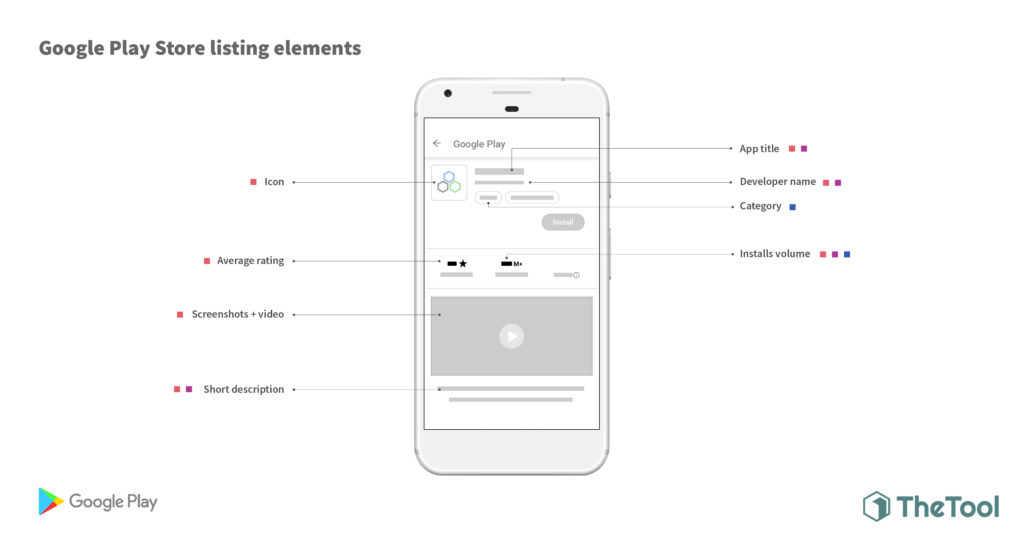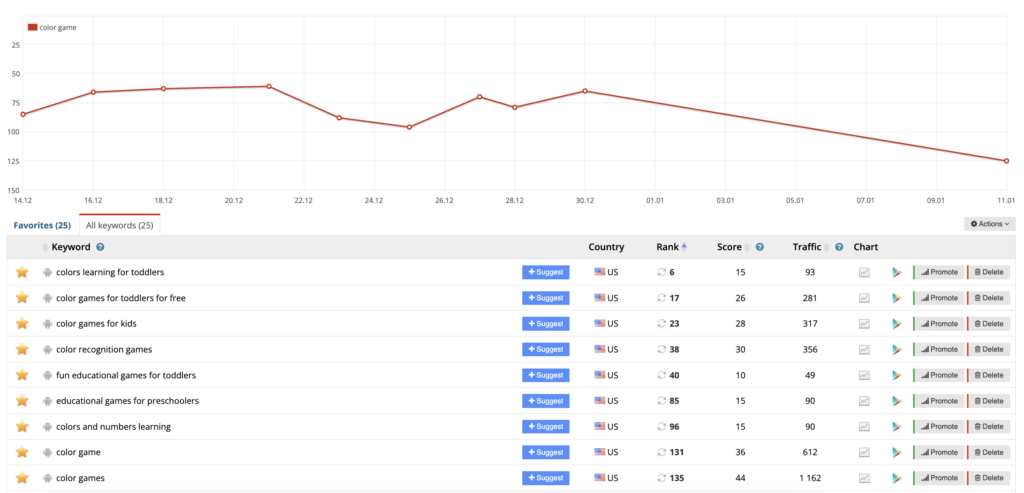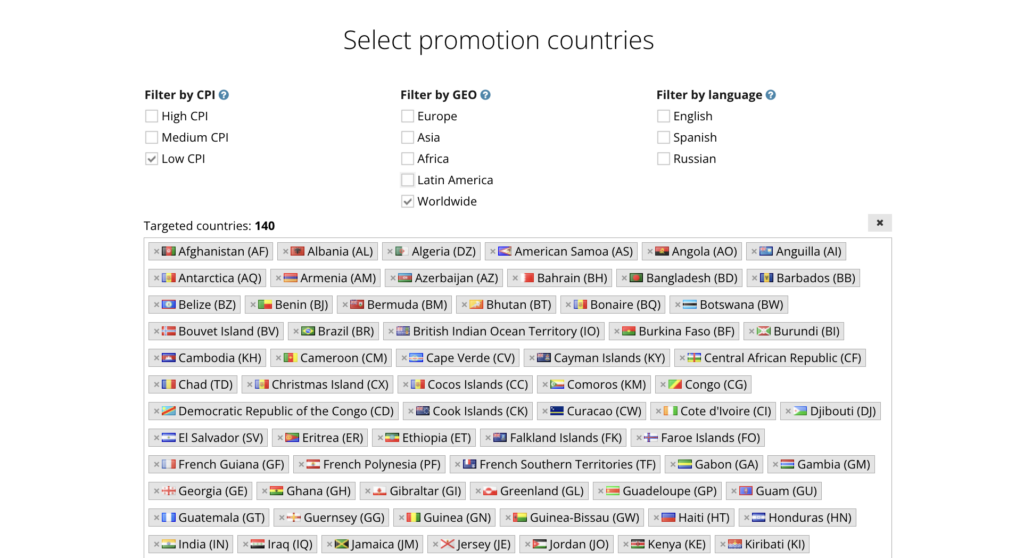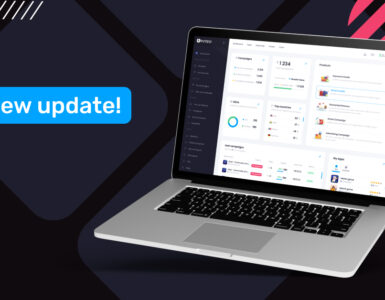In the dynamic landscape of mobile gaming, where creativity meets technology, launching your game on Google Play is an important moment that requires strategic planning and a well-thought-out approach. As we enter 2024, the competition in the app stores has become higher than ever, demanding a combination of innovation, marketing efforts, and user-centric design to ensure your game stands out from the huge variety of games Google Play developers offer.
To make your game launch on Google Play a success, we’ve put together five important tips to help you navigate the current trends and tendencies in the games category. They’re here to help developers and studios stand out in the busy world of mobile gaming. These strategies cover everything from making your app more visible to keeping players engaged. They’re not just about launching your game but also about laying the groundwork for its ongoing success.
App Store Optimization (ASO)
Launching your game without a solid App Store Optimization (ASO) plan is like setting out on an adventure without a map. In 2024, the Google Play Store is teeming with countless games, emphasizing the need to speak the language of your potential players. Start by diving into detailed keyword research to figure out the terms users are likely to use when searching for games like yours. Once you’ve got that done, proceed with your app’s title, description, and metadata, in general, to match those high-search-volume keywords and make the game indexed to get organic search traffic. Also, put effort into crafting eye-catching graphics, screenshots, and videos that not only highlight your game’s special features but also draw users in for a closer look.
Launching your game without a solid App Store Optimization (ASO) plan is like setting out on an adventure without a map. In 2024, the Google Play Store is teeming with countless games, emphasizing the need to speak the language of your potential players. Start by diving into detailed keyword research to figure out the terms users are likely to use when searching for games like yours. Once you’ve got that done, proceed with your app’s title, description, and metadata, in general, to match those high-search-volume keywords and make the game indexed to get organic search traffic. Also, put effort into crafting eye-catching graphics, screenshots, and videos that not only highlight your game’s special features but also draw users in for a closer look.

- Boost Visibility with Precise Keyword Choices:
Start by looking for keywords that align with your game’s style, features, and niche. Think about how your potential players express themselves when searching for games like yours. Utilize ASO tools such as the ones we offer on the Keyapp platform to gather high-traffic and relevant keywords. This step is the first one you need to do so to be sure that the game will be visible to the potential audience.

- Create a Title That Grabs Attention and Plays a Role in Indexation:
Your game’s title is its first hello. Look for a title that not only captures your game’s features but also consists of relevant keywords. Keep a balance between being creative and hitting those keywords so that potential players instantly get what your game is all about.
- Mention all Pros as well as Keywords in Your Descriptions:
Your game’s description is your chance not only to tell about your game but also to make the app indexed and influence the work of the Google Play search algorithm. Optimize it by adding informative content with the most important keywords.
- Invest in Visual Assets:
Users love visuals, so invest time in creating eye-catching graphics, screenshots, and promo videos. These visuals shouldn’t just flaunt the gameplay but also shout out your game’s unique strengths.
- Keep Going with Regular Updates:
ASO isn’t a one-and-done deal; it’s a constant process. Keep a close eye on how your chosen keywords are performing, listen to what users are saying in reviews, and stay in the loop with industry trends. This way, your game remains on the radar, attracting a new audience.
Social Media Marketing
Of course, we do understand that launching the game is not so easy and cannot consist only of adding the app to the Google Play store and waiting for the players only due to the ASO iterations and some paid UA. The world of games is so broad so to make sure your app is noticed by users, it is necessary to proceed with any possible marketing efforts. One such way is game promotion applying the power of social media.
- Social Media Presence:
Establish a presence on popular social media platforms like Instagram, Twitter, and Facebook. These channels are not just about promotion; they are about building a community around your game. Share engaging teasers and behind-the-scenes content to create anticipation. Spark conversations with your audience, inviting them into the creative process.
- Interactive Teasers and Trailers:
Elevate your marketing by turning it into an interactive experience. Create teasers and trailers that don’t just show gameplay but involve the audience. Interactive content not only captures attention but also creates a sense of participation, making potential players feel connected to your game.
- Cross-Platform Synergy:
Explore synergy between different platforms. Create cross-platform campaigns that drive traffic to your game on Google Play. Utilize the strengths of each platform; for example, use YouTube for in-depth gameplay showcases and Twitter for quick updates and engagement.
Start Paid UA
As you can already get, the first two steps are the essentials at the stage when you proceed with mobile game launch, but the following marketing efforts should already include the work with the audience, so the future players of your game. Of course, it is possible to understand that any application doesn’t start to get traffic at once after it is released and that’s necessary to apply different strategies to attract the users. The first option you can pay attention to is paid UA.

- Define Your Target Audience:
Before diving into paid UA, clearly define your target audience. Understand who your game appeals to the most, considering factors like age, interests, and gaming preferences. This clarity ensures that your advertising efforts are directed toward the right demographic.
- Utilize Social Media Advertising:
Leverage the power of social media platforms for targeted advertising. Platforms like Facebook and Google Ads allow you to create ads tailored to specific demographics, increasing the likelihood of reaching potential players who are genuinely interested in your game.
- Explore In-App Advertising Networks:
Consider partnerships with in-app advertising networks that cater to gaming audiences. These networks can help your game reach users who are already engaged in gaming activities, increasing the chances of attracting players who are likely to enjoy your game.
Do NOT Forget About Organic Traffic
If you worked with mobile games previously or just started this journey, it could seem that organic traffic is not so important in this niche, but that’s not so. Organic traffic represents users who discover and engage with your game naturally, driven by their genuine interest. These users are more likely to be passionate about the content, leading to authentic engagement and potentially fostering a loyal player base. As it is known, there are 2 sources of organic traffic: explore and search. Explore traffic represents the one received from similar apps, different categories charts, etc, while search traffic is even more valuable since it is generated by users who type search requests on the store and look for the desired game.
Investing in App Store Optimization (ASO) contributes directly to organic traffic. By optimizing your app’s title, description, and metadata with relevant keywords, you increase its visibility in store search results, attracting users actively looking for games like yours.
Some important factors influencing the number of organic traffic the game may get:
- User Reviews
Organic traffic often results from positive word-of-mouth and user reviews. Encouraging satisfied players to leave positive reviews can significantly influence others’ decisions to download your game. Authentic endorsements contribute to a positive reputation, attracting more organic traffic. If you still believe that users do not read the reviews before app installation, that’s not so.
- App Ranks in the Search
Game positions for search requests in the list are extremely important when it comes to organic traffic. As we said previously, search traffic is considered to be the most valuable due to the clear users’ intention to install a particular type of application or game.
Search traffic is influenced a lot by ASO and the way you proceed with text creation, as that’s what Google algorithm analyses when decides to give the indexation to the game. At the same time it is crucial to remember that even if the game occupies low ranks due to the competitiveness, for example, there are additional options to increase the positions using keyword promotion.
Keyword promotion is a way to increase the app ranks for search requests on Google Play. Using this type of promotion the game starts to occupy higher positions in the search generating more and more organic downloads due to the increased visibility among the players.

Do not forget, that Keyapp has the biggest experience in keyword promotion if compared with other platforms as we have been working with Google keyword installs already more than 8 years. Within this time, we managed to create our own strategies to achieve TOP 1 even for the most competitive keywords as well as know all the secrets about the algorithm work. If you need any help with strategy creation, do not hesitate to contact us.
Make Users Return
In the world of mobile games, the work doesn’t stop after the launch. Adding cool stuff like daily rewards and special events on Google Play is essential on Google Play to increase the retention rate. Here’s a breakdown of how you can make your users come back to game-playing:
- Daily Rewards:
Imagine getting a little surprise every day you play. That’s what daily rewards are like! It could be game money, special items, or exclusive stuff. People love surprises, and this keeps them excited to play your game every day. Make sure the rewards are cool and different each day. This way, players get into the habit of coming back for their daily treat.
- Events Inside the Game:
Now, let’s talk about in-app events. They can be themed for holidays, seasons, or just because! Events bring in new challenges, cool rewards, and a feeling of excitement. Spread the word about these events with in-game announcements and notifications. It’s not just about keeping the current players happy; it also brings in new players who want to join.
- Keep Things Updated:
Ever get tired of playing the same thing over and over? Seasonal updates fix that! Introduce new levels, challenges, or stories that match the real-world seasons. Connect these updates to special in-game events. This creates a rhythm, making sure players always have something to look forward to. It’s all about preventing the game from feeling old and boring.
Sum UP
All in all, the game launch may seem easier at the stage of development, while it is a kind of big project involving hundreds of activities focusing on user attraction and retention. We do understand that some of the strategies may seem difficult and not needed, but believe us, try to follow at least 5 tips we mentioned as they are essential considering the fact that the world of mobile games is becoming more and more competitive. At the same time, do not forget that the Keyapp platform has a lot of services to offer for the games at all the stages of promotion starting from the first users attracted with CPI campaigns and continuing with organic traffic attraction with keyword promotion. Contact our support team, we will create the best strategy for your game promotion!






















